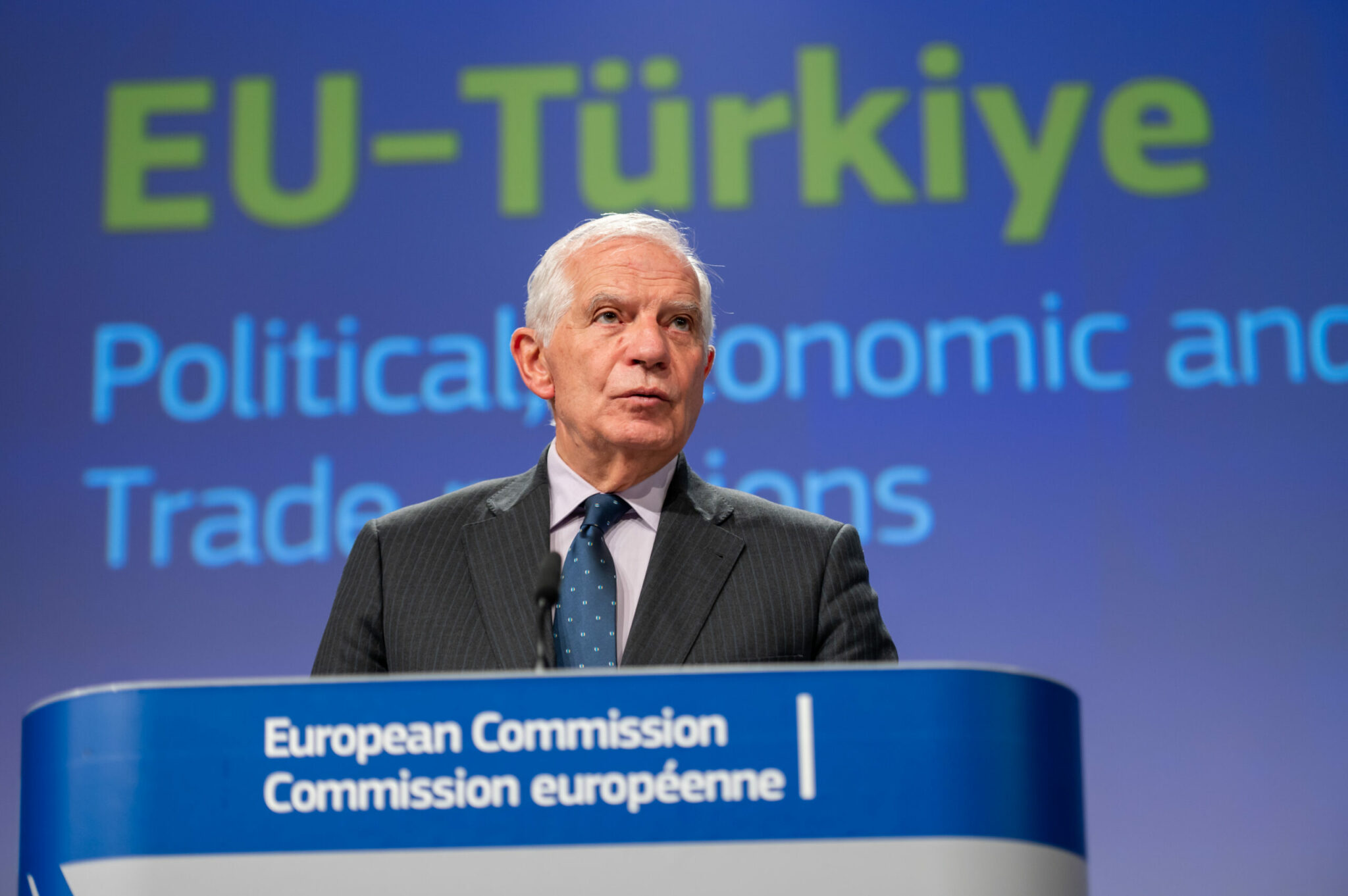Havva Yesil (Dublin City University)
In continuation of the mission assigned by the European Council meeting of June 29–30, 2023, the European Commission and the High Representative recently approved a Joint Communication detailing the current status of political, economic, and trade relations between the European Union and Türkiye. The 17-page report, jointly announced by Josep Borrell, Vice President of the European Commission and high representative in charge of foreign policy and security, and Oliver Varhelyi, commissioner in charge of enlargement, aims to alleviate the consequences of the Eastern Mediterranean tension in Ankara-Brussels relations in 2019 and 2020 and to resolve the issues between the parties, especially geopolitical issues. The significance of the report lies in its status as the third publication in 2023 that addresses the current situation and future prospects of Türkiye-EU relations.
Borrell’s remarks in the press release underscored the Union’s goals and affirmed the primary objective of safeguarding the EU’s interests. Borrell brought up the following points: the need to update the Customs Union, to keep working towards lowering tensions in the Eastern Mediterranean, and to restart high-level consultations on the next steps to take with Türkiye. On the other hand, Varhelyi echoed Borrell’s remarks, stating that a durable partnership is crucial and stressing that the EU and Türkiye have more in common than disagreements. Borrell and Varhelyi appeared to adhere to the traditional EU discourse during their press meeting, potentially as a means to avoid facing opposition criticism towards Türkiye. It is noteworthy that the Union has a strong willingness to engage in more frequent and meaningful interactions as part of the positive agenda, which aligns with geopolitical events and the interests of the Union. Consequently, the speeches adopted a more balanced tone, highlighting the concepts of “partnership” and “mutual benefit” instead of making strong statements about membership.
The report analyses the current state of the relationship between Türkiye and the EU, focusing on three main aspects: Political relations, bilateral relations, and the economy and trade. The report identifies several factors that impact bilateral relations, including: the necessity to decrease tensions in the Eastern Mediterranean, the Cyprus issue, Türkiye’s stance towards Russia, NATO expansion, Türkiye’s foreign policy on regional matters, and other developments such as its policies on the Middle East, Palestine, human rights, and legal order. Although Borrell and Varhelyi were cheerful during the press conference, the report substantiates the assertions made by Greece and the Greek Cypriots. It highlights the EU’s biases by pointing out two examples: Turkish support for the military operation against Armenia and Turkish forces in Syria. The report claims that there have been disparities in the collaboration between Türkiye and the EU in the foreign policy domain throughout time. In this context, the report, on the one hand, criticises Türkiye for adopting a different approach from the EU countries in the Russia-Ukraine war, and on the other hand, it is stated that Türkiye made a great contribution to the grain corridor agreement. The report’s bilateral relations section affirms that the accession negotiations with Türkiye are ongoing from a legal standpoint. However, no advancements have been achieved since 2018 due to Türkiye’s divergence from the European Union.
The report details the areas of collaboration but also contains criticism on economic, political, and legal areas. The EU expects Türkiye to comply with ECHR rulings and make good efforts towards a thorough improvement in the Cyprus and Eastern Mediterranean issues, as indicated both expressly and implicitly throughout the report. Paradoxically, it maintains a strong emphasis on collaborating with Türkiye on migration. The report highlights the significance of the EU-Turkey statement, which designates Türkiye as a safe country. However, it also points out that Türkiye has distanced itself from the membership process and has failed to implement rulings made by the ECHR. This suggests that the report was biassed and created to serve the Union’s interests rather than EU values. It appears that the individuals responsible for drafting the report encountered challenges in identifying areas in which to make progress in the EU- Türkiye relationship. The power challenges between Türkiye and the EU, together with sanctions and other measures that hinder bilateral interactions and beneficial cooperation, will have detrimental effects on both parties in the short and long run. Unless Türkiye’s erosion of the domains of fundamental rights and the rule of law ceases and concrete actions are taken regarding the Cyprus issue, Türkiye’s membership negotiations will not come on to the agenda. Unfortunately, the recommendations prepared by the Commission only include superficial points to prevent the rupture of the relationship.
The views expressed in this blog reflect the position of the author and not necessarily that of the Brexit Institute Blog.



